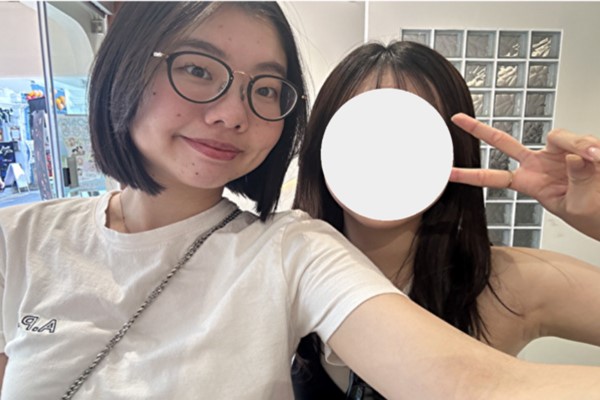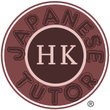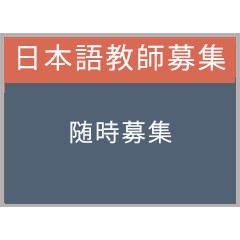Japanese Courses Singapore
Japanese Tutor RIKO

Native Japanese Teacher RIKO
Native Language Japanese
Language Ability Fluent in English
Born GUNMA – Japan
Teaching Area Singapore City, Clementi, Holland Village, Kent Ridge, Buono Vista etc
Japanese Courses Provided by RIKO
Private Japanese Lessons and Personalized Programs
Nice to meet you, I’m RIKO! I’ve been living in Singapore since I was 15 years old, and I’m currently studying business administration at university in Singapore.
While living in Singapore, I realized that many of my friends from different countries are interested in learning Japanese and Japanese cultures, which inspired me to become a tutor to support people who are willing to learn about my country!
I can adjust the teaching style flexibly based on the student’s request and proficiency level. I hope we can enjoy learning Japanese together while keeping in mind your learning goals and objectives! I also look forward to having conversations on a variety of topics during our lessons. The topics can vary from the latest trends in Japan, the topic you’re interested in, or even expressions that can be used in business occasions. I’d be happy to cover a wide range of content!
Japanese often embodies consideration and respect for others, which I believe you would be able to understand unique values of Japanese people through learning the language. I personally love learning about different cultures so I hope to create opportunities for us to learn and appreciate about our cultures!
初めまして、RIKOと申します。中学三年生の頃からシンガポールで生活をしており、今年から現地の大学に進学しました。シンガポールで生活をする中で色々な国の友達が日本語や日本の文化に興味を持ってくれていることを知り、私も日本語学習のサポートをしたいと思い、チューターになることを決めました。
生徒さんのご要望やレベルに合わせて、柔軟に授業方法を調整することができます。日本語を学習する目的や目標を大切にしながら、楽しく日本語を一緒に勉強しましょう!また授業の中では様々なトピックについての会話も楽しみたいと思っています。ご自身の興味がある話題や日本の最新トレンド、更にはビジネスシーンで使用できる表現まで、幅広い内容でお話しできると嬉しいです!
日本語には、相手への思いやりや敬意が込められていることが多いため、日本語を学ぶことで日本人特有の価値観も学ぶことができると思います。私自身、他国の文化に触れることが大好きなので、授業を通じてお互いの文化を学び合う機会を作られたらと考えています。
Japanese Teaching Approach
My teaching approach would vary based on the student’s proficiency level and their goals for learning Japanese.
For example, with students who want to improve their communication skills, I will cater communication-focused lessons while incorporating vocabulary and grammar learning points. For a young student, I aim to make the lesson enjoyable as possible by using picture books or videos. Additionally, I also can teach students who are aiming to pass any kinds of Japanese Language proficiency test.
What I value most in all lessons is helping the students achieve their own goals in learning Japanese. I will make sure my lessons are enjoyable while respecting your needs and wants.
Japanese Teaching Qualification
I do not have experience in teaching Japanese, but this allows me to come up with flexible teaching method that caters your needs!
Private Japanese Lessons and Personalized Programs
I will be open for 1-1 lessons or 1-2 lessons as well. I’m willing to prioritize your preference on the teaching methods and cater personalized lessons!
私の授業スタイルは生徒さんのレベルや日本語学習においての目標に合わせます。
例えば、日本語での会話を上達させたい生徒さんとは会話中心の授業を行いながら、単語や文法などを合わせて勉強します。お子様の生徒さんには、楽しく飽きずに勉強を続けてほしいので、絵本や動画などを用いた授業を行います。その他にも、日本語検定試験の合格を目指す学生さんには、教材を中心とした授業を行います。
共通して大切にしていることは、生徒さんにとっての日本語学習の目的・目標の達成です。少しでも役に立てるよう、個々の要望を尊重しながら楽しく日本語を勉強してほしいです。
Ask RIKO Teacher Japanese Learning Questions
RIKO先生へ「いいえ」と「いや」と「ううん」の違いについて教えていただけないでしょうか?
RIKO先生’s Answer:
この3つの単語はどれも物事や状況を否定する際に使用されます。しかし、使い方やニュアンスに違いがあります。
「いいえ」は相手に丁寧に相手の発言を訂正・否定する際に使用します。なので、ビジネスのシーンなどのフォーマルな場面や目上の方・あまり親しくない方との会話に用いられます。
例えば、目上の方に「あなたは日本人ですか?」と聞かれた場合、 「いいえ、私は中国人です。」と丁寧に返答をすることができます。
「いや」は「いいえ」よりカジュアルなニュアンスがあり、親しい人との日常会話でよく使われます。ここで注意をしなければいけないことは、「いや」は相手の意見を強く否定したり、反論をする際にも使用されます。ですので、声のトーンや表情に注意を払いましょう。
例えば、友達が「明日の授業は9時からだよね?」と聞いた時、カジュアルに「いや、8時半からだよ。」と答えることができます。
「ううん」はこの3つの単語の中で最もカジュアルなニュアンスを持ちます。家族や友達などの親しい人との日常会話でよく使用されます。「いや」とは違って、否定的なニュアンスは含まれていません。
例えば、お母さんに「お腹空いている?」と聞かれた時に、「ううん、お腹いっぱいだよ。」と答えることができます。
All these 3 words are used when denying/disagreeing to a thing/condition the person who you are having conversation with said. However, there are differences in usage and nuances.
「いいえ」is used when you deny things politely and with respect. Therefore, it is often used in a formal occasion such as when you are having conversation with your supervisor or person who you are unfamiliar.
For example, when your supervisor or person who you just met asked you「あなたは日本人ですか?」, you can answer by saying 「いいえ、私は中国人です。」
「いや」has more casual nuance than いいえ, and sometimes used to counterargue the opponents’opinon or perspective. Since it has this casual nuance, it is used in everyday conversation with someone you are close with. However, you must take note of how いや has little sense of negative denial as it might sound harsh depending on the person who you are having conversation with. Hence, you should have extra attention to your tone and facial expression to avoid sounding offensive.
For example, when your friend asked you「明日の授業は9時からだよね?」, you can answer casually by saying「いや、8:30からだよ。」
Lastly,「ううん」has the most causal nuance among these 3 words. It is used in everyday conversation with people who you are close with such as your friend or family. Therefore, it might be considered rude if you use in business occasions. The only difference with いや is that there aren’t any sense of negative denial to this word.
For example, when you mother ask you「お腹空いている?」you might answer「ううん、お腹いっぱいだよ。」
RIKO先生へ「~は~」と「~が~」の違いについて教えていただけないでしょうか?
RIKO先生’s Answer:
この2つの助詞は主に主語の後に使用され、主語とその後に続く文章を繋げる働きがあります。
「~は~」は、主語や文章の主体を強調する働きがあります。なので、その文章の中心となる話題は「~は~」の前にきます。例えば「私はシンガポールに住んでいます。」という文章では「私」という主語が強調され、その後に続く文が「私」についてである事がわかります。
しかし、「~が~」は主語の動作や状況を強調します。また、「~は~」は両者が理解している話題についてのみ言及するのに対して、「~が~」は会話の話題の中で新しい情報を提供する際に使用します。例えば、「来週はあなたが掃除当番です。」という文章では、主語である「あなた」の掃除という動作が強調され、相手にとって新しい情報が提供されています。(来週掃除をすること)
These two particles (role of connecting words) are used after the subject, connecting the subject with the subsequent sentence.
「~は~」has the function of emphasizing subject of the sentence such as topic and subject itself. Therefore, the theme/topic of the sentence usually comes before 「~は~」.
For example, the sentence「私はシンガポールに住んでいます。」emphasize on the subject「私」which we can understand how the sentence is something about 「私」.
However,「~が~」is used to represent the action/behavior/ state of the subject, which highlights and emphasize the subject of the sentence。Also, it is used to provide new information in the conversation, unlike 「~は~」which only circulates around the topic both parties understands.
For example, in the sentence「来週はあなたが掃除当番です。」the subject「あなた」is emphasized and the new information, which is 来週掃除当番である, is provided by one party.
RIKO先生へ「~だったら~」と「~でしたら~」の違いについて教えていただけないでしょうか?
RIKO先生’s Answer:
この2つの単語は新しい選択肢や条件を提供する際に使用されますが、唯一の違いはフォーマル・カジュアルといった形式です。
「~だったら~」は日常会話でよく使用されます。例えば、公園に行くつもりが急に雨が降り始めた時、「明日だったら晴れだよ。」と「明日」という新しい提案をする際に用いられます。
フォーマルなシチュエーションでは、「~でしたら~」を使用します。例えば、他社と協力してアウトドアイベントを開催するなら、「来週でしたら晴れですよ。」とビジネスの場面でも失礼のない言い方で新しい提案を提供する事ができます。
Although these 2 words are used when presenting the new choice/condition to satisfy, the only difference is its formality.
「~だったら~」is more casual comparing with 「~でしたら~」which is often used in the everyday conversation. Therefore, it can be considered rude if it is used in the business occasions.
For example, when you planned to go to the park but suddenly started raining, you can say「明日だったら晴れだよ。」. The word「明日」provides alternate choice for the situation in a casual way.
We can understand 「~でしたら~」by changing this situation to a business occasion. If you were to have an outdoor event in collaboration with other company, you can suggest a date by saying 「来週でしたら晴れですよ。」
Ask RIKO Teacher Japanese Culture Questions
日本文化は様々な要素で構成されていますが、今回は食文化について紹介します。
日本には昔から「一汁三菜」という言葉があります。一汁三菜とは1つの汁物を3つのおかずが含まれた献立を指し、和食の大きな特徴の一つである栄養バランスのとれた健康的な食事を表します。主菜にはお魚やお肉などのタンパク質を、副菜で野菜を摂取し、汁物で体を温めることで健康的な食生活を目指しています。
そして、食器も料理を美味しくいただく上で大切な要素と考えています。器の大きさやデザイン、彩りなど細かいところまで気を使います。
これらは、日本が貧しい国だった頃の人々の食べ物に対する強い感謝の気持ちを現代にも受け継いでいる証拠です。


Stay in Touch
RSS
Facebook
Twitter
Google +1